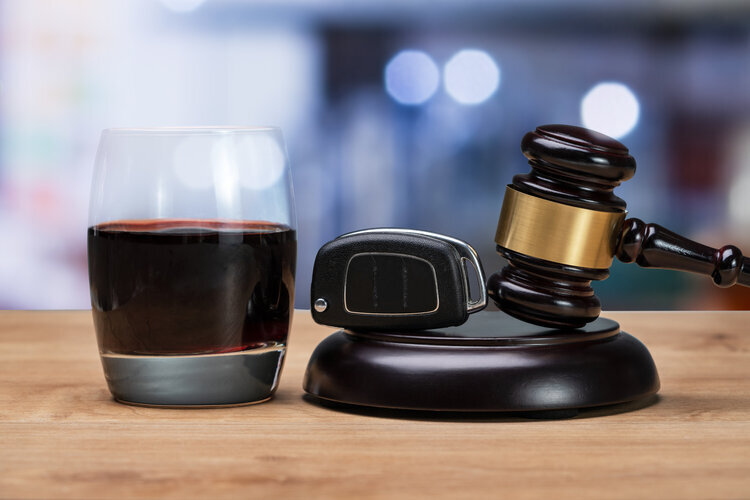Common Defenses to OWI Charges in Indiana: What You Need to Know
In Indiana, an OWI (Operating While Intoxicated) charge is more than just a traffic offense—it’s a serious legal matter that can affect your freedom, license, finances, and reputation. Whether it’s your first offense or a repeat allegation, the consequences can include jail time, fines, license suspension, and a permanent criminal record.
But an arrest isn’t a conviction. You have rights—and defenses. Understanding the most common legal defenses to OWI charges in Indiana can help you take the right steps forward. While this guide highlights common strategies, every case is unique, and only an experienced OWI defense attorney can properly assess your options.
I. Challenging the Initial Stop and Arrest
A. Lack of Reasonable Suspicion
Law enforcement must have reasonable suspicion to pull you over. This means they must observe something illegal or suspicious—like weaving between lanes, speeding, or running a red light.
Examples of potentially unlawful stops:
An officer stops you based on an anonymous tip with no confirmation.
You're pulled over for a minor equipment issue but questioned about alcohol use without any additional basis.
If the stop was not justified, your attorney may be able to suppress all evidence gathered during and after the stop—including breath or blood test results.
B. Lack of Probable Cause for Arrest
After a stop, the officer must develop probable cause to arrest you. That means they need more than a hunch—objective facts that suggest you were driving while impaired.
Examples of weak probable cause:
Vague statements about bloodshot eyes or “nervous behavior.”
No failed field sobriety test or visible signs of intoxication.
If your arrest lacked probable cause, it could invalidate the prosecution’s case.
C. Improper Traffic Stop Procedures
Indiana law requires officers to follow specific legal and constitutional procedures. Failure to:
Inform you of your rights,
Properly request a chemical test,
Or conduct a lawful arrest,
could be grounds for dismissal or reduction of charges.
II. Challenging Chemical Test Results
A. Faulty Breathalyzer or Blood Test Equipment
Breathalyzers must be properly calibrated and maintained. If the machine used in your case was:
Overdue for calibration,
Damaged,
Or improperly configured,
your test result might be inadmissible in court.
B. Improper Test Administration
Officers must follow strict rules when administering chemical tests. That includes:
A 15- to 20-minute observation period before a breath test,
Using clean and approved testing supplies,
And ensuring no food, drink, or vomiting occurred before the test.
Failure to follow these procedures can make results unreliable.
C. Medical Conditions Affecting Results
Conditions like acid reflux (GERD) or diabetes can cause elevated breath alcohol readings. Even some diets or medications can skew results.
Your defense attorney can present medical records or expert testimony to challenge test accuracy.
D. Chain of Custody Issues (for Blood Tests)
For blood tests, every step of handling—from collection to lab analysis—must be documented. Missing links in the chain of custody can lead to contamination or tampering concerns, making the test results unusable.
III. Challenging Field Sobriety Tests
A. Lack of Standardized Procedures
Field sobriety tests (FSTs)—like the walk-and-turn or horizontal gaze nystagmus—are subject to human error and must be conducted according to NHTSA standards.
Things that affect test accuracy:
Poor lighting or uneven surfaces,
Physical limitations like injury, age, or weight,
Nervousness or weather conditions.
B. Officer Subjectivity
OWI arrests often hinge on an officer’s personal observations. If the officer lacked proper training or made incorrect assumptions, those judgments can be discredited in court. Videos of the stop or bodycam footage often show inconsistencies in how tests were interpreted.
IV. Other Potential Defenses
A. Necessity Defense
In rare cases, someone might drive under the influence to escape immediate danger (e.g., fleeing domestic violence). While difficult to prove, this necessity defense is sometimes viable.
B. Involuntary Intoxication
If you were unknowingly drugged or consumed alcohol without realizing it (e.g., spiked drinks), your attorney may raise an involuntary intoxication defense.
C. Rising Blood Alcohol
Your BAC can rise after you stop driving. If your breath or blood test occurred well after the stop, you might have been below the legal limit while actually behind the wheel.
V. Conclusion
An OWI arrest in Indiana is serious—but not hopeless. Common defenses like challenging the stop, the arrest, or the test results can make a powerful difference. Your case deserves a careful review from an experienced Indiana OWI defense lawyer who knows how to fight for your rights.
If you’re facing charges, don’t wait. Contact Vining Legal today at (317) 759-3225 or schedule a consultation online. We’ll help you understand your options and fight for the best outcome possible.





